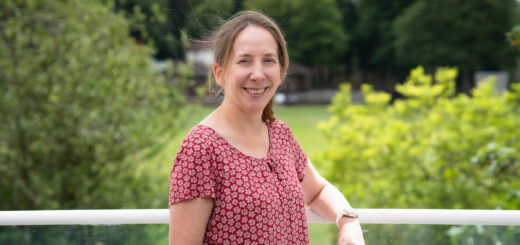Exclusive interview with Ms Eleanor Dixon, Headmistress of Falkner House Boys School
Introduction
It was a great pleasure to meet Eleanor Dixon who once upon a time attended the Falkner House Girls’ School as a pupil, along with her three sisters. Her youngest sister even works alongside her in the office now and they originally teamed up to found the school and create after she recognised that there was a missing opportunity in the offering amongst many of the boys’ schools in the area; something that was the right blend of academic and nurturing.
Eleanor’s teaching career started at the Falkner House Girls’ School in 2010 and she has been the Head of Falkner House Boys’ since it started. Prior to all this, Ms Dixon enjoyed a successful career in law but now says that education is in her blood.
Question:
How and why did you decide to open a boy’s school?
Answer
When I looked for my eldest son, amongst the boys’ schools out there, there wasn’t what I wanted from a school. So I ultimately felt that there weren’t the opportunities for him to have what I have been lucky enough to have growing up. So I wanted somewhere that was the right blend, in my opinion, of academic and nurturing, loving and fun. And I felt that there were not many choices out there. So this school didn’t exist when my oldest started school and then he joined here when we opened his form, which was Year 3.
Question:
How much collaboration do you have with the original girls’ school?
Answer:
In terms of collaboration, we do a lot. We did a whole school production of Oliver a few years back that was very successful. So plays, sports days together, with some of the regular sports, we do them together as well as some core curricular lessons too. And of course, teachers compare notes and share resources and we do staff parties and celebrations together. We try to get the best out of the connection. We’re also planning on doing a whole school production next year that’s combined.
Question:
Do you think the school’s location can sometimes present challenges? How does the school allay some of the parents’ concerns around that?
Answer:
Well we always have two members of staff at the door for drop off but in reality, our families are predominantly relatively local. But there are a good number coming from quite far north, up around Regents Park and another from Little Venice, and then some coming from furthest East, as well as one coming in from Battersea and Westminster.
Question:
Do you have a school PTA? If so, how important is it to have the parents involved in the school?
Answer:
So we don’t have a PTA, we arrange everything like second hand uniform sales, charity events but at the same time we know which parents like to be involved. So there are some parents who love being involved with second hand uniform sales, the cake bake or the Christmas decorations. Then there are some parents who can’t or would rather not. It works very well , they let us know if they’d like to be involved and we put our feelers out when we need support with something. Equally though if there are any issues, they can always come to us. And when they do we are very easy to talk with. I’m there every day on the front door, easy to phone, email, we’re very responsive.
Also in terms of the charities we support, it varies each time we run a project or campaign. We will choose a different one each time. At the moment, it’s a small India-based charity because there’s a friend who’s been raising money for it. It seemed like a very good niche charity. Last year was a bigger, more established one. We sometimes involve the children but we try to alternate between a child-centred one or a more general one, an international one or more local one. Okay, so it varies depending on who we’ve recently worked with.
Question:
Are you planning to introduce more subjects to the core curriculum?
Answer:
Yes, so we introduced Spanish at Year 3 in both the boys’ and girls’ schools and we ensure they’re making progress but not necessarily through a written exam that’s assessed. We prefer to do it informally through speaking and listening and check their understanding of basic grammar and whether they are ready to then use that as a springboard for their next step with that language or indeed a new language.
Other than that though, we believe that we are small enough that if we feel something needs to change, we generally change it there and then. And so we don’t tend to have that many long, long term plans. So for example, we used to have chess club run by external providers which we later stopped because they weren’t any good. And then we discovered we have two fantastic as it happens male members of staff who enjoy chess very much. And so we introduced that as part of daily life, within school hours. So you move depending on the strength of the team in front of you.
Question:
How do you control bullying in the school?
Answer:
We don’t have any specific problems with bullying but I’m not so arrogant as to think that all the boys or girls are kind to each other all the time, day in day out, I believe, though it’s important – without getting too legal about it – the persistent abuse of power is a very specific crime. And how we deal with unkindness it’s vital to make sure that we are never so arrogant as to think that we’re immune to bullying. But the culture of kindness, the size and the awareness and the caring is vital. When we had this inspection last year they said that when they looked across the two buildings there were no instances they could see but nonetheless we do need to manage how the children interact with each other day in and day out.
Question:
Do you teach at the school? Or help with any subject?
Answer:
I do sometimes get involved with the preparation for interviews but no, I don’t have my own class. I think my mother and I would empty the school if we started trying to teach. I could teach economics to Year Six. That was my subject. But for me, I enjoy doing sections of assembly, but lessons no. The teachers are outstanding here and they do a fabulous job.
Question:
I thought it was interesting hearing about Westminster changes (doing 7+ and 9+ entrance exams), and how they’re starting the school for younger children. What do you think about this process?
Answer:
I think they liked having the opportunity and the flexibility of being able to have the chance to welcome pupils earlier but without the commitment necessarily of having them all the way through to 18. It’s very difficult navigating this though, and it makes it potentially complicated as our children leave here here and for our boys set for schools that take in at Year 7 and take in at Year 9 because there are two schools that they take in at Year 9, Westminster and St. Paul’s, but they also have places in Year 7, but more Year 9. So for our boys, for whom this has been relevant, they would generally go to a prep school for those two years after us. So we do the preparation then they’d get their offer when they leave us but go somewhere else in between..
Conclusion
The Falkner House story begins with Eleanor Dixon’s mother, Anita Griggs who was brought up in the flat above the school. She eventually took over as Head in 1999 and today, Mrs Griggs is principal of both the Boys’ and Girls’ Schools, working alongside her daughters Mrs Dixon and Mrs Rogers who head up the two schools. The schools are now an LLP, with all partners being members of the Griggs family and there is total commitment to maintaining the schools as a family business.
It’s a one form entry school with 26 girls in the reception and three teachers. From Years 1, 2 and 3 there are approximately 25 pupils with two teachers. A good number of students leave the school on the 7+ and join the larger established all-through schools, such as Westminster and St. Paul’s. The school gives some guidance and information about the process but they will do everything to work in the child’s best interests. It’s up to the parents to have the final decision regarding moving the children out even if the child is not ready for it. Their intake for a chance place is around one or two children.
Walking around the school, the classrooms downstairs appear pristine and clean whilst the corridors are lined with framed pictures of maps in all forms as well as a large chronology of the monarchy. The playground is small but in constant use and they make sure to use Holland park for sports and other outdoor events. We like that the children are forbidden to use mobile phones in school and it must be stored in the office.
The school has 3 dog mascots that belong to the Headmistress, Daisy, Frankie and June. During the day they wander around the school going from one classroom to another and as we approach lunchtime, they are seen in the corridor that leads to the canteen.
There is no PTA in the school but parents are welcome to join and be involved in the activities, such as Bake sale, charity events, second hand sale…
There is nothing better than asking a customer what they think about the service and that’s exactly what I did; a sweet, helpful Year 6 child who conducted the tour with the parents answered me when I questioned him about the pressure of 11+ at that school saying: ‘It’s not stressful, it is actually really relaxed’.
The two schools collaborate as much as possible – as they did a few years ago with a joint school production of Oliver that was very successful. They also do sports days together, and sometimes team up for swimming and other extra-curricular lessons and events. Mrs Dixon pointed out that teachers compare notes and share resources as well as do social events together. It’s convenient to do some activities together as they have entire families attending both schools.











